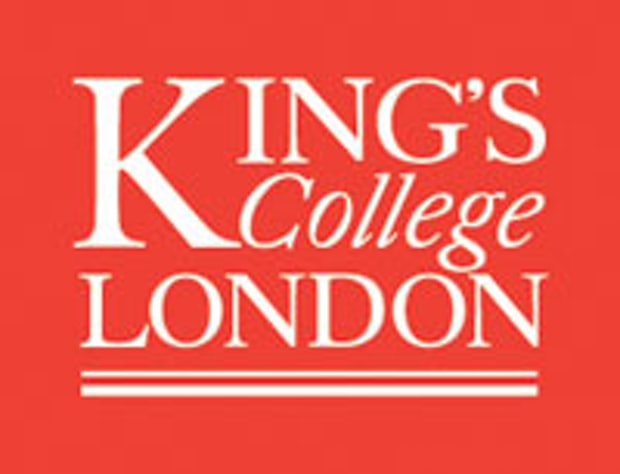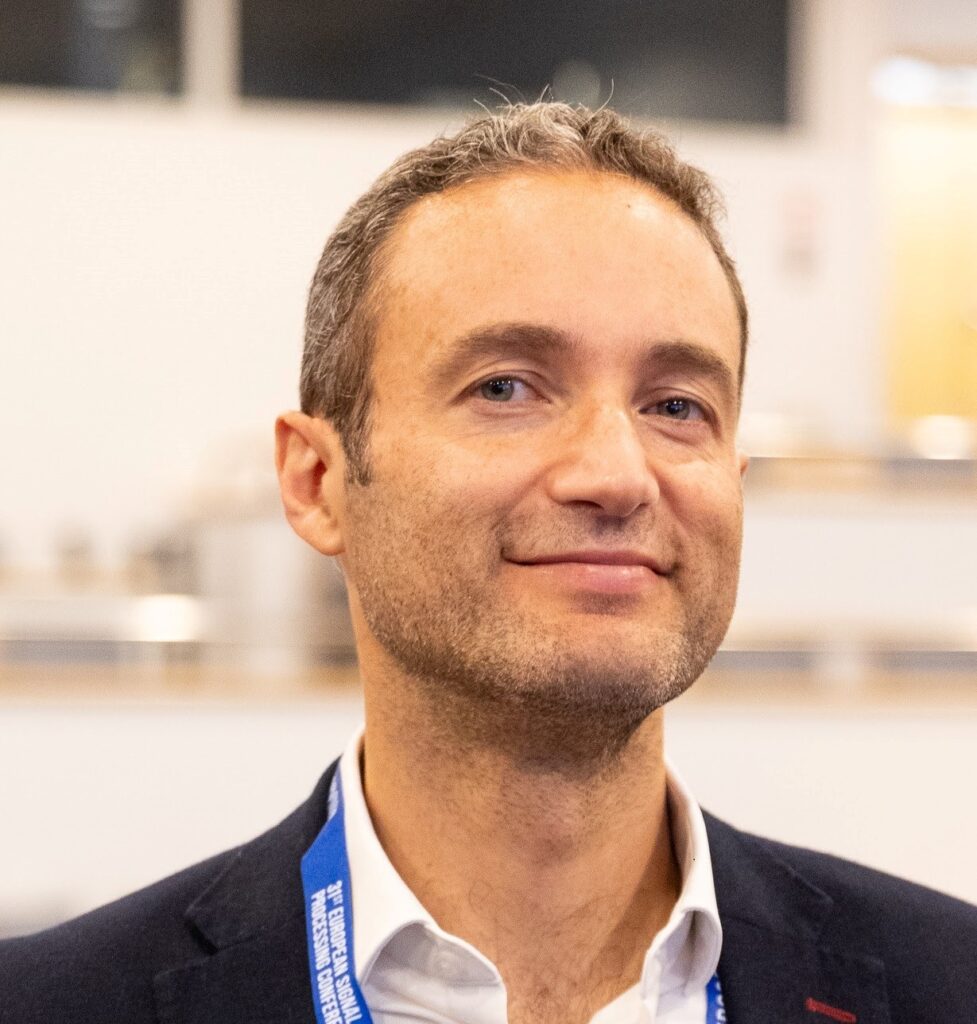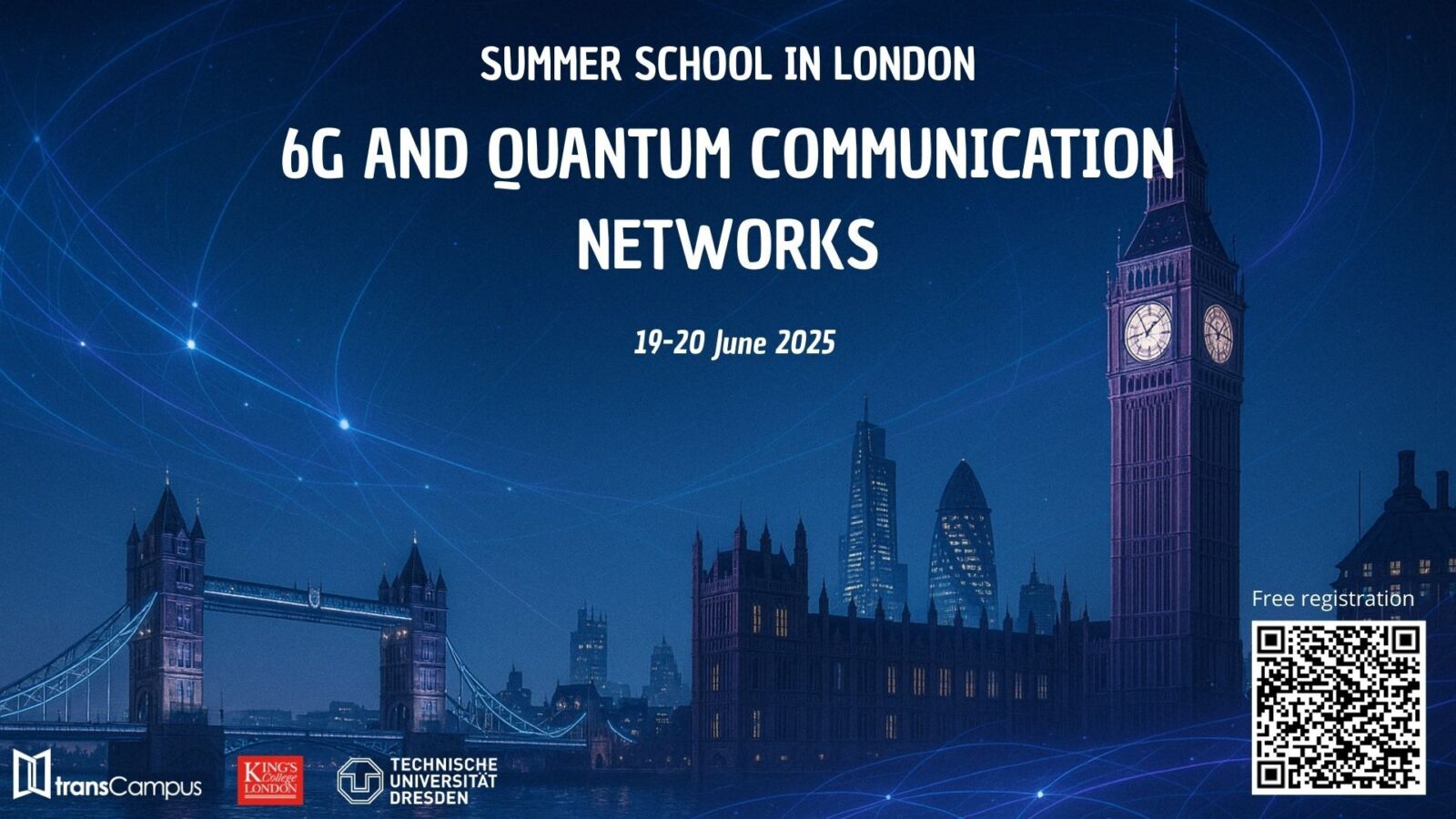The 2nd edition of the quantum communication networks summer school is coming up! This time with a 6G supplement: the transCampus Summer School on 6G and Quantum Communication Networks.
We are delighted to have renowned experts from academia and industry as our guests again this year. They will present the results and methods of their research in quantum and 6G technologies, focusing on the role that quantum technologies can play in 6G standardisation.
You can find the complete programme below.
Registration
Are you interested? Please register on eventbrite for the two-day event taking place in London on 19-20 June 2025.
Lecturer
Ahsan Javed Awan
works as a Technology Specialist in Emerging Compute Algorithms at Ericsson Research. Prior to joining Ericsson in 2018, he worked at Imperial College London in the UK. He holds a joint Ph.D. from KTH Royal Institute of Technology, Stockholm, Sweden, and the UPC, Barcelona, Spain. Ahsan has coauthored more than 20 research papers (including two best paper awards) and filed more than 30 patent applications (including 7 granted patents in the US & EU).
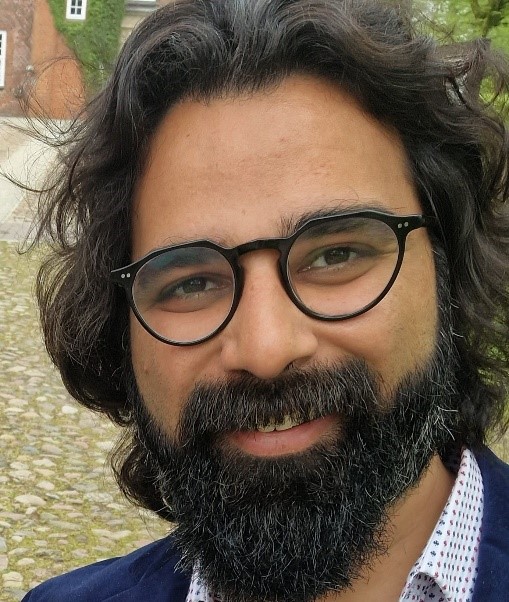
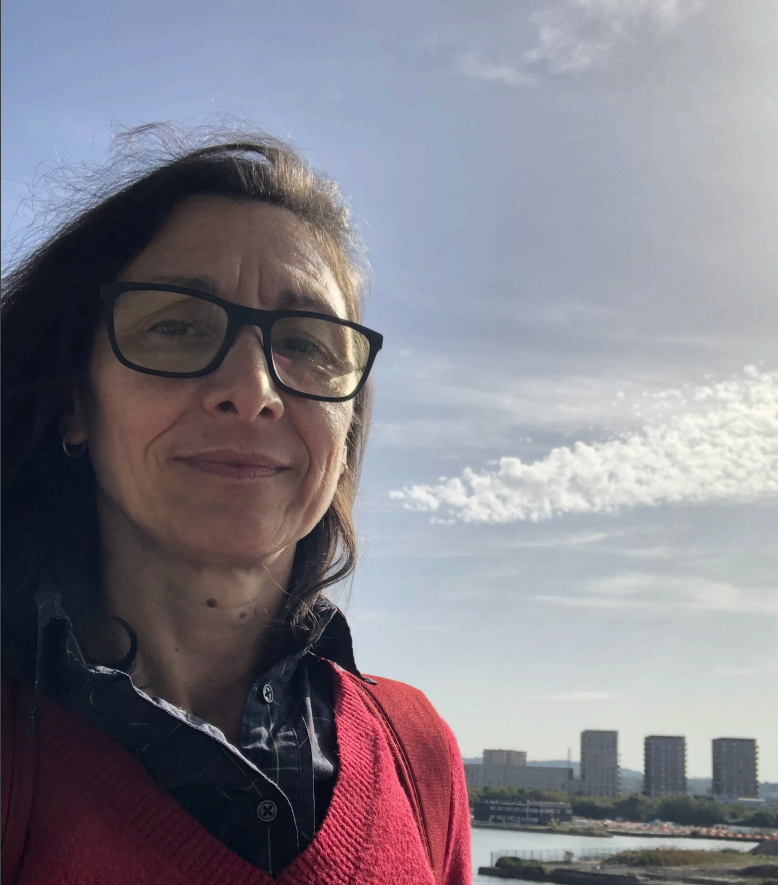
Alessandra di Pierro
is an associate professor at the Department of Computer Science of the University of Verona, Italy. Before moving to Verona, she was a lecturer at the department of Computer Science – University of Pisa, where she also received her PhD in Computer Science. Alessandra’s research interests are in theoretical computer science with a main focus on the theory of quantum computation and its applications to Machine Learning. She leads the QUILAB (Quantum Information Laboratory) research group at the department of Computer Science in Verona. Since 2017 she is a member of the steering and organising committee of the annual conference QTML (Quantum Techniques in Machine Learning), and field editor for Quantum Software of the Springer journal `Quantum Machine Intelligence’..
Enrico Buracchini
Currently, Enrico is a 5G senior project manager into INNOVATION DEPT of TIM (former CSELT R&D labs). He was elected Vice Chairman of 3GPP RAN Plenary at last meeting in March in Incheon. Since 2001 release 5, he has been actively participating in 3GPP, covering the standardization of WCDMA, HSPA, LTE, LTE ADV and NR, with experience extending across the whole RAN TSGs domain. He is currently RAN1, RAN2 and RAN Plenary Delegate, coordinating TIM technical work into 3GPP RANs groups. Recently, Enrico actively contributed to 6G and 5G Advanced roadmaps, AI/ML models for data collection and operator control, TRP/TRS requirements and 2Rx XR Ue items, besides of several other items. In rel8 and 9 LTE standardization period, he was Rapporteur of ICIC SI/WIs. Besides of 3GPP, he actively contributed, from 1996 to 1999, to ITU RTG8/1 group dedicated to IMT2000, being one of the inventor of the ITU R 3GPP process. From 2013 to 2018, he actively contributed to ITU R WP 5D, being editor and coordinator of several sections of IMT2020 Vision and IMT 2020 Technology Trends.
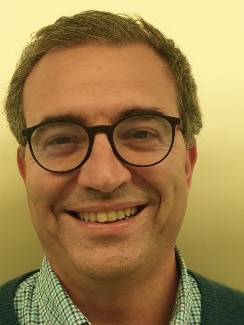
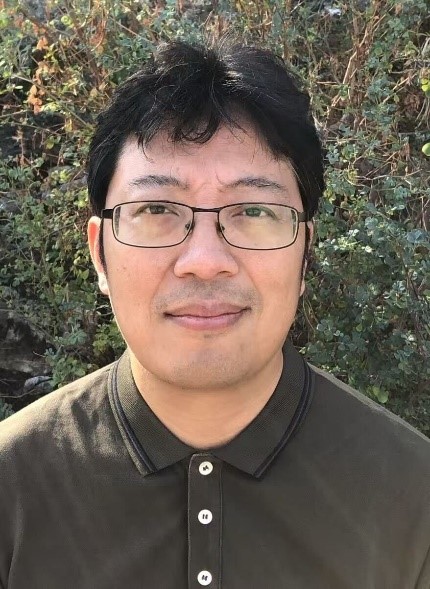
Ming Yin
is a Senior Research and Development Expert at Telekom Innovation Labs. He earned a master’s degree in computer science from the Technical University of Berlin and brings nearly 20 years of experience in software development and the telecommunications industry. Since 2020, Ming has been part of T-Labs’ quantum team, working in close collaboration with leading German universities and industry partners, including QUTAC (Quantum Technology and Application Consortium in Germany), to advance quantum applications for telecommunications. He holds a dozen patents in the fields of mobile payment, security, and quantum applications..
Savvas Varsamopoulos
leads the UseCases team at Pasqal, where he is a Senior Quantum Algorithms Developer. His focus is on the design and implementation of quantum algorithms for both internal research and industrial applications. Savvas bridges theory and practice, supporting clients across diverse sectors in exploring the real-world potential of quantum computing. He holds a PhD in Quantum Error Correction from Delft University of Technology, where his research contributed to the adoption of classical ML techniques in decoding protocols for Quantum Error Correction. His current interests lie at the intersection of quantum algorithm design, error mitigation strategies, and the translation of quantum advantage into practical workflows. Passionate about driving quantum technologies from concept to application, he regularly collaborates with academia and industry to advance the field.

Programme
Venue
Bush House, Strand Campus, King’s College London, London WC2R 2LS.
Thursday, 19 June
9:00 to 12:00
Lecture and work session I: 5G and 6G: Architectural Characteristics, Use Cases, and Standardisation Efforts
Enrico Buracchini (TIM)
The lecture will be dedicated to 5G main use cases and rationale, 5G main enablers such as MIMO, Slicing, NSA and SA,etc…, 5G releases and 5G Adv evolution, 6G main R&D streams and standardization progress and status in 3GPP.12:00 to 13:00 Lunch break
13:00 to 14:30 | 14:45 to 15:45
Lecture and work session II: Quantum Communications from Operator Perspective: Reimaging Telco Networks
Ming Yin (Deutsche Telekom)
As quantum technologies rapidly mature, telecom operators are uniquely positioned to lead the transformation of secure communications infrastructure. This lecture explores quantum communication through the lens of network operators, focusing on practical applications, integration strategies, and emerging business opportunities. We’ll demystify core concepts like quantum key distribution (QKD) and entanglement, then shift to real-world deployment models, including fiber-based and satellite-assisted quantum links. The session also highlights how telco networks can evolve into hybrid classical-quantum architectures, enabling new services such as quantum-secure VPNs, premium SLAs, and Quantum Network-as-a-Service (QNaaS). Designed for professionals navigating both technology and strategy, this talk provides a roadmap for embracing quantum communication as a competitive edge in the next decade of network innovation.15:45 to 17:15 | 17:45 to 18:30
Lecture and work session III: Exploring the Potential of Quantum Computing for Telecommunication Networks
Ahsan Javed Awan (Ericsson)
This session will present insights from our research on multi-chip quantum processors and the evaluation of quantum methods across a range of telco workloads. Our findings suggest that quantum computing has the potential to offer computational advantages in the control and management planes of telco networks, provided key challenges such as scalability and fault tolerance are addressed. However, the complexity of optimizing non-linear cost functions limits the applicability of quantum computing in the radio domain. To fully harness the power of quantum computing in telecommunications, we propose hybrid processing models that integrate multi-chip quantum systems with classical computing to achieve optimal performance. Additionally, the lecture will highlight other promising developments, such as training quantum machine learning models with fewer parameters and data points, as well as leveraging classically simulable quantum circuits for network design and optimization.Friday, 20 June
9:00 to 10:30 | 11:00 to 12:00
Lecture and work session IV: Algorithmic Advances in Quantum Computing with Neutral Atoms
Savvas Varsamopoulos (Pasqal)
Arrays of optically trapped neutral atoms have recently been highlighted as a good candidate platform for Quantum Computers, by demonstrating high levels of scalability, precise control, and low power consumption. Furthermore, they allow the possibility to run both analogue protocols which are native to this architecture, as well as more mainstream digital quantum algorithms, as seen by recent demonstrations of error correction protocols.
This talk will explore the core characteristics and benefits of neutral atom quantum processing units (QPUs), outline their different operational modes, examine current technological limitations, and demonstrate their potential through key use cases in diverse physics and engineering challenges—paving the way toward applications at an industrial scale.
In particular, it will focus on problems such as: (i) graph-based approaches to Machine Learning, which are naturally suiting the analogue mode of neutral atom machines; (ii) Scientific Machine Learning (SciML) approaches, targeting the solution of (stochastic) Differential equations that can seamlessly embed actual data where available and exploit generalization properties; (iii) extremization & combinatorial optimization, which is a common target of quantum methodologies that we address via appropriate embeddings to reduce such optimizations to either Quantum-SciML or graph theoretic strategies.12:00 to 13:00 Lunch break
13:00 to 14:30 | 15:00 to 16:00
Lecture and work session V: Quantum Kernels for Supervised Learning
Alessandra Di Pierro (University of Verona)
Kernel methods are a powerful class of machine learning algorithms that allow us to perform complex, non-linear transformations of data without explicitly computing the transformed feature space.
The quantum kernel methods emphasize the importance of quantum feature map which describes how the classical data vectors is mapped to the quantum states.
The use of this seemingly easy approach to quantum machine learning actually brings about several problems in the choice of the appropriate embedding leading to an effective quantum advantage.
In this lecture, I will discuss some of these problems and present possible solutions and their applications.Organisers
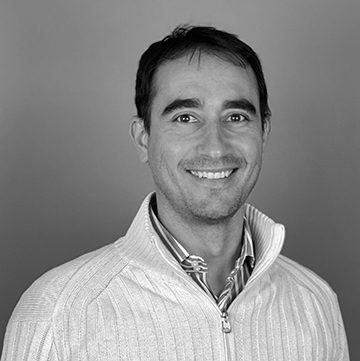
Riccardo Bassoli
Riccardo Bassoli is a Juniorprofessur at the Deutsche Telekom Chair of Communication Networks and Head of the Quantum Communication Networks (QCNets) research group, at the Faculty of Electrical and Computer Engineering, at Technische Universität Dresden. He is member of the Centre for Tactile Internet with Human-in-the-loop (CeTI), Cluster of Excellence, Dresden. He is also member of the EU Quantum Internet Alliance (QIA) and of the EU flagship for 6G Hexa-X II. He is principal investigator in the 6G-life research hub of Germany. He got his Ph.D. from 5G Innovation Centre at University of Surrey (UK), in 2016. He was also a Marie Curie ESR at the Instituto de Telecomunicações (Portugal) and visiting researcher at Airbus Defence and Space (France). Between 2016 and 2019, he was postdoctoral researcher at Università di Trento (Italy).

Osvaldo Simeone
Osvaldo Simeone received the M.Sc. (with honors) and Ph.D. degrees in information engineering from Politecnico di Milano, Milan, Italy, in 2001 and 2005, respectively. He is a Professor in information engineering. He codirects the Centre for Intelligent Information Processing Systems, Department of Engineering of King’s College London, where he also leads King’s Communications, Learning and Information Processing Laboratory. He is also a Visiting Professor with the Connectivity Section, Department of Electronic Systems, Aalborg University. From 2006 to 2017, he was a Faculty Member with the Electrical and Computer Engineering (ECE) Department, New Jersey Institute of Technology (NJIT), where he was affiliated with the Center for Wireless Information Processing (CWiP).
